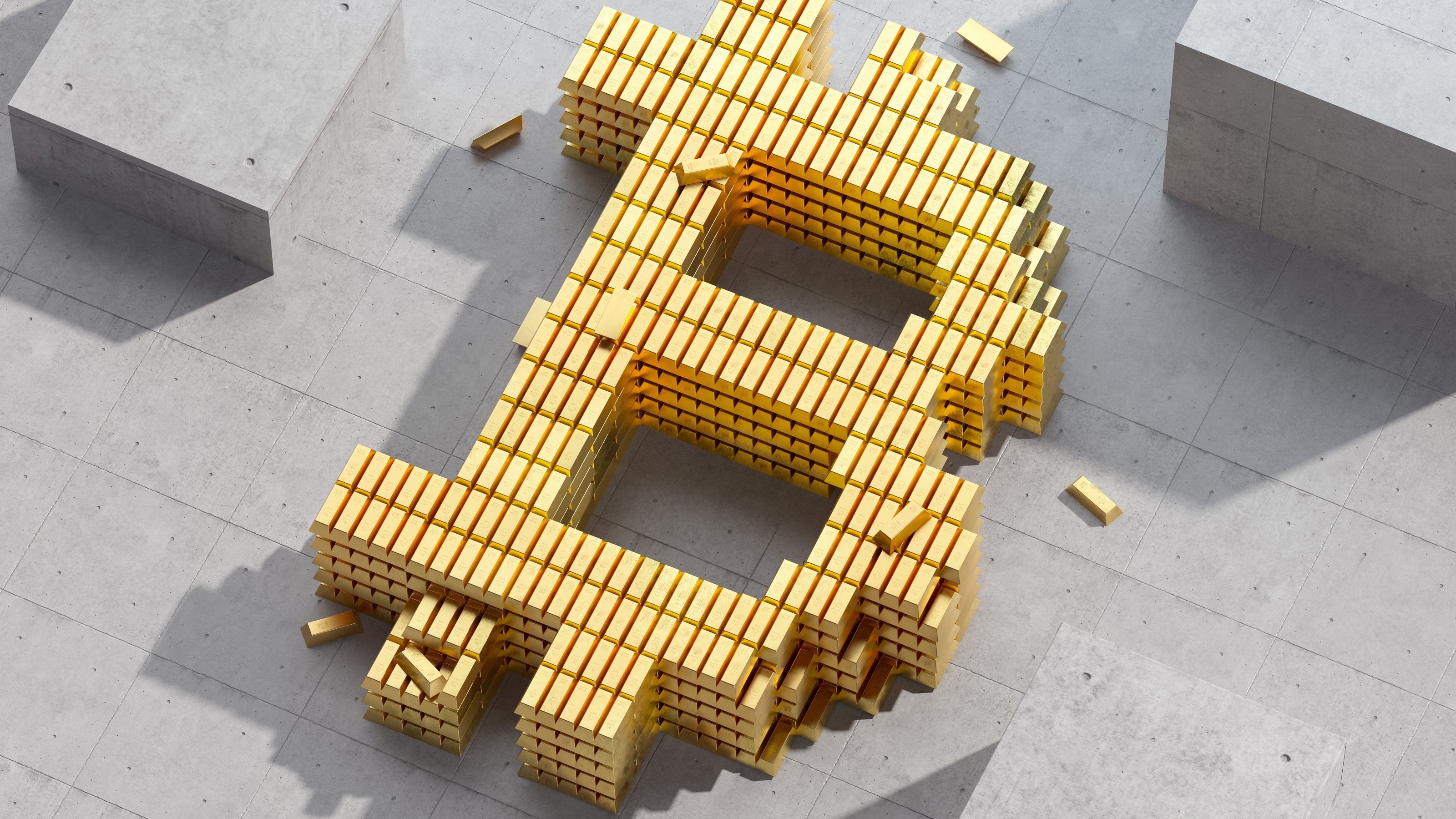Why Now May Be a Good Time to Invest in Commodities
You may want to consider adding inflation-hedging commodities such as bitcoin and gold to your portfolio.


Profit and prosper with the best of Kiplinger's advice on investing, taxes, retirement, personal finance and much more. Delivered daily. Enter your email in the box and click Sign Me Up.
You are now subscribed
Your newsletter sign-up was successful
Want to add more newsletters?

Delivered daily
Kiplinger Today
Profit and prosper with the best of Kiplinger's advice on investing, taxes, retirement, personal finance and much more delivered daily. Smart money moves start here.

Sent five days a week
Kiplinger A Step Ahead
Get practical help to make better financial decisions in your everyday life, from spending to savings on top deals.

Delivered daily
Kiplinger Closing Bell
Get today's biggest financial and investing headlines delivered to your inbox every day the U.S. stock market is open.

Sent twice a week
Kiplinger Adviser Intel
Financial pros across the country share best practices and fresh tactics to preserve and grow your wealth.

Delivered weekly
Kiplinger Tax Tips
Trim your federal and state tax bills with practical tax-planning and tax-cutting strategies.

Sent twice a week
Kiplinger Retirement Tips
Your twice-a-week guide to planning and enjoying a financially secure and richly rewarding retirement

Sent bimonthly.
Kiplinger Adviser Angle
Insights for advisers, wealth managers and other financial professionals.

Sent twice a week
Kiplinger Investing Weekly
Your twice-a-week roundup of promising stocks, funds, companies and industries you should consider, ones you should avoid, and why.

Sent weekly for six weeks
Kiplinger Invest for Retirement
Your step-by-step six-part series on how to invest for retirement, from devising a successful strategy to exactly which investments to choose.
In a televised CNBC Squawk Box interview in late October, legendary billionaire hedge fund investor Paul Tudor Jones said he prefers commodities such as bitcoin and gold instead of fixed-income instruments. Jones reasons that inflation is still coming, and the U.S. will have to grapple with its rising deficit.
“We’re going to be broke really quickly unless we get serious about dealing with our spending issues,” Jones told Squawk Box’s Andrew Ross Sorkin. He also said, “All roads lead to inflation.”
Jones is long on bitcoin, gold and commodities in general and does not plan to own fixed-income instruments. To some extent, I agree with Jones. Here’s why.
From just $107.88 $24.99 for Kiplinger Personal Finance
Become a smarter, better informed investor. Subscribe from just $107.88 $24.99, plus get up to 4 Special Issues

Sign up for Kiplinger’s Free Newsletters
Profit and prosper with the best of expert advice on investing, taxes, retirement, personal finance and more - straight to your e-mail.
Profit and prosper with the best of expert advice - straight to your e-mail.
Debt, rate cuts and inflation
As of early November, according to the U.S. Debt Clock, the U.S. had a national debt of almost $36 trillion, and a debt-to-equity ratio of almost 123% compared to 55.5% in 2000. This means that our debt spending has far outpaced our income from gross domestic product-collected taxes, tariffs and other fees.
The deficit shortfall is filled with government borrowing via both short-term Treasury bills and long-term Treasury bonds. It is like a household that has overspent with its credit cards but does not have the income to pay it back, so it borrows from others to make those payments.
The Federal Reserve announced a 25-basis-point interest rate cut November 7, which will make debt cheaper for businesses, car loan borrowers, real estate developers and others. That will also lower fixed interest returns on Treasuries. If investors jumped into Treasuries and the money market when the Fed hiked rates, they will now seek bigger returns elsewhere in “risk-on” assets such as stocks after those rates go lower.
Note that the prices of long-duration Treasuries such as the 10-year bond are set by auction, with yields determined by whether there is high or low confidence for lending money long term to the government.
Governments generally like a manageable 2% inflation rate — not zero inflation — as it keeps their future deficits affordable, since their future debts will be worth less. However, they do have to keep inflation under control to prevent runaway prices that result in hyperinflation.
Gold and bitcoin in the spotlight
In recent months, gold has been hitting record highs and is expected to be a haven for many, given war fears in several parts of the world. Central banks globally have been buying higher amounts of gold. The BRICS effort to introduce an alternative gold-backed currency to the U.S. dollar could also increase the demand for the precious metal.
Bitcoin is also increasingly gaining attention. The fixed quantity of 21 million bitcoins relative to growing demand can be an inflation hedge. And in December, the Microsoft board is scheduled to hold a shareholder vote on whether the company should invest part of its huge cash treasury into bitcoin. Although it is not yet clear whether the proposal will pass, the question being put to a shareholder vote of a major American corporation is already a big step.
Plus with the SEC approval of the bitcoin ETF early in 2024, U.S. regulatory clarity is emerging, although in other jurisdictions, it is another matter altogether.
Protecting your portfolio from inflation
Jones believes that given the size of the deficit and the inability of both political parties to rein in expenses, inflation is inevitable. Lowering interest rates will likely exacerbate that further as it makes debt cheaper. Additionally, some experts are concerned that if President-elect Donald Trump makes good on his promise to enact tariffs, that could bring inflation roaring back again. Inflation can be favorable to governments globally who want to run deficits, but that can also hurt unhedged investor portfolios.
There are no perfect investments, of course, and bitcoin and gold have their own caveats. Bitcoin is a new asset class, and although big firms such as BlackRock and Fidelity have seen large inflows around their SEC-approved bitcoin ETFs, some may still wait until more well-known names have bought into it. It’s important to note, however, that bitcoin ETF inflows have become significantly large, meaning bitcoin is gaining adoption with mainstream institutional and retail investors.
Gold, on the other hand, has been a store of value for many centuries. In uncertain times such as war and economic depression, funds often flow back into it. However, when economies recover, investors prefer yield-bearing assets or those that produce dividends or significant spot price appreciation.
Whether you buy into Jones’ investment thesis, it may be a good time to consider adding inflation-hedging commodities such as bitcoin and gold alongside your stocks and bonds.
Related Content
- How Bitcoin ETFs are Performing So Far
- Yes, You Can Buy Gold At Costco — And Now Silver Too
- Why You Should Invest in Commodities
- Why You Shouldn’t Ignore Investing in Commodities
The information provided here is not investment, tax or financial advice. You should consult with a licensed professional for advice concerning your specific situation.
Profit and prosper with the best of Kiplinger's advice on investing, taxes, retirement, personal finance and much more. Delivered daily. Enter your email in the box and click Sign Me Up.

Zain Jaffer is the CEO of Zain Ventures. He also runs the nonprofit Zain Jaffer Foundation.
-
 Ask the Tax Editor: Federal Income Tax Deductions
Ask the Tax Editor: Federal Income Tax DeductionsAsk the Editor In this week's Ask the Editor Q&A, Joy Taylor answers questions on federal income tax deductions
-
 States With No-Fault Car Insurance Laws (and How No-Fault Car Insurance Works)
States With No-Fault Car Insurance Laws (and How No-Fault Car Insurance Works)A breakdown of the confusing rules around no-fault car insurance in every state where it exists.
-
 7 Frugal Habits to Keep Even When You're Rich
7 Frugal Habits to Keep Even When You're RichSome frugal habits are worth it, no matter what tax bracket you're in.